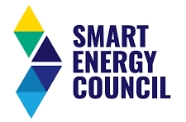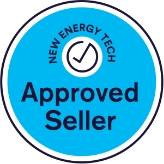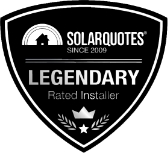(Update: In March 2019, Victoria made becoming a CEC approved retailer, Mandatory. Or at least mandatory if they wanted to be able to access the solar rebate, which is the only way they can stay competitive. This means that now, being a CEC approved retailer just doesn’t carry the same weight that it used to. What this really means is that all good companies are CEC approved retailers, but not all CEC approved retailers are good companies)
Early in 2016, we raised the bar and became signatories of the Clean Energy Council Code of Conduct. We are now recognised as Clean Energy Council Approved Solar Retailers. The CEC is the peak body for the Solar energy industry in Australia. They developed the Code to provide consumers peace of mind when deciding on which company to purchase a solar power system off, and to clean up an industry so full of cowboys.
The Code should not be confused with similar logos you may see advertised. What’s the difference between a CEC accredited installer, a CEC Accredited Designer, A CEC Member, and a CEC Approved Solar Retailer?
Watch this video for more info:
What’s the difference?
A CEC accredited installer is a personal work licence – it’s not a business accreditation. To install solar first, you have to be a licensed electrician; then you can train and apply to be a CEC accredited installer/ designer. The CEC does a great job of controlling the quality of the workmanship under this program, the solar industry would be so much worse off without this well regulated CEC accreditation. However, your warranty doesn’t lie with the installer but the company that sold you the system. There is no requirement for the company that sold you the system to be an electricians, be solar accredited or even be educated in solar. There are around 4500 accredited installers in Australia.
CEC Membership is about being involved with the work of the Clean Energy Council and supporting them with their important work of promoting renewable energy. Member levels vary and come with increasing levels of engagement in working groups and forums, priority for sponsorship opportunities and votes at the AGM. There are currently over 400 CEC member companies.
A Clean Energy Council Approved Retailer is different. It’s about a solar business adhering to a code of conduct in their dealings with the public. To apply, amongst other things, you can’t have a relevant history with the ACCC or Fair trade. You can’t be a phoenix company: you cannot be a past director, manager or close relative rising from the ashes of a previous failed solar company.
Well, that just narrowed the field! We were the 24th Solar company in Australia to sign the code. As of April 2017, there are only 40 approved retailers out of 84 applications.
Why I signed the code of conduct
As a licensed electrician, electrical contractor, CEC accredited designer & installer, I have chosen to go one step further and sign the code of conduct. On signing the code, I willingly opened my business up to the scrutiny of the CEC through their thorough application process. Amongst other things, we had to adjust our policies and procedures. It also means the CEC will audit us from time to time to ensure compliance. If a customer believes we have broken the code, the can report that to the CEC.
However, in many ways, signing the code was a way for us to formally announce the way that we do business. Our sales staff act honestly, always with the customers best outcome in mind. Our installers (employees not subcontractors) are well trained and are always kept up to date with regulation changes and best practices. We select only quality components and source from stable suppliers. Our office staff always treat after sales service as a high priority. This is a summary of what we signed up to:
A summary of the code of conduct
Pre-sale
- Ensure that sales reps act ethically at all times
- Not act dishonestly or in a misleading way with advertising or sales tactics
- Educate consumers about their purchase with essential information about the system in writing before entering into a contract, including a site-specific system design and an average daily performance estimate for each month of solar generation
Post-sale
- Uphold consumers’ rights about cooling-off periods and refunds, giving customers the opportunity to cancel a contract and receive a full refund if changes are made that are not approved in writing (including changes to the system design).
- Provide a five-year warranty (we generally offer a ten-year warranty, see our terms and conditions) covering the operation and performance of the entire solar system
- Fully inform customers about the processes involved to have their solar system connected to Energex. (We facilitate this process on behalf of the customer)
General business
- Provide consumers with all required documentation after the system is installed.
- Adhere to all existing legislation and regulations.
- Be fully accountable for the actions of any subcontracted parties, including Clean Energy Council accredited installers/designers. (I wish this could be forced on all sales companies)
- Have a fair and transparent complaints process and respond to customers within 21 days of them making a complaint. (This process was one part I needed to document to satisfy the CEC)
Conclusion
The Clean Energy Council Code of Conduct is a much-needed code in the solar industry. We’re all proud at MC Electrical to have signed up as CEC Approved Solar Retailers. If you are interested in getting a quote for solar that you can trust, contact us or wander around my blogs to get up to speed with solar.
Mark Cavanagh













5 Responses
Thanks for this informative blog about budget solar buying tips. Such a very simple point, yet very remarkable.
Hi Heinz. Interesting question. An automated process is the best for solar. Panels like Winaico, LG and SunPower we can guarantee are automated. Many others we can not.
Are the sun solar panels manufactured by robots or by any other method?
Hi Mark, I’d be surprised if it is a Jinko panel fault, I’d be interested to see the panel. If it is, a warranty on the panel will not be an issue. You will have to pay for the labour. Depending on the orientation of your panels (eg if east-west) then your peak in winter will be low. We’ll call you today, or contact us on 0732683836.
G’Dday, My name is Mark, and I have a problem, one of my solar panels has gone silver, I think it has gone dead. I had Electroy install my Jinko Solar Panels x 20, and Aurora 5KW Inverter. Also, the system doesn’t seem to power much more than 3KW on a 5KW system, can you help me please. I know that there will be a service fee, but how much and what to do from here is the next question, Thanks, Mark Ramsay.